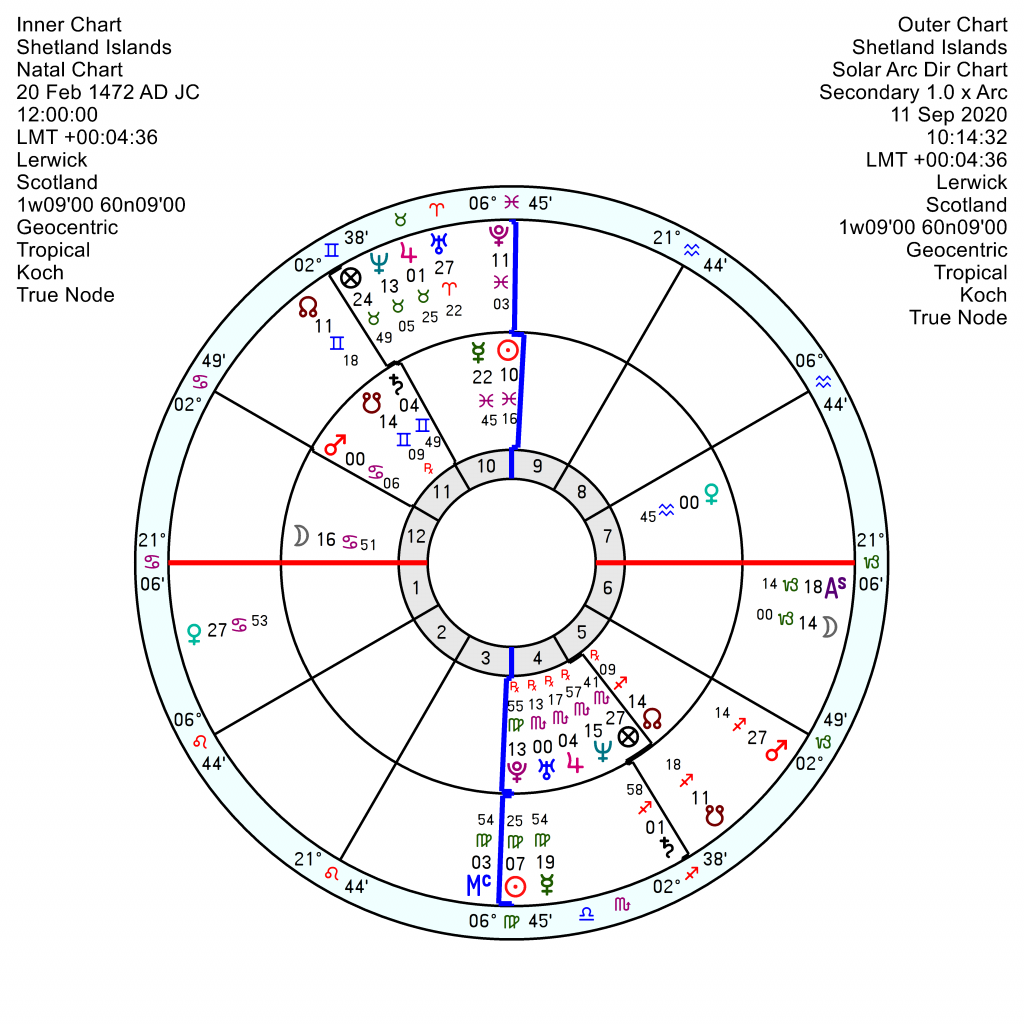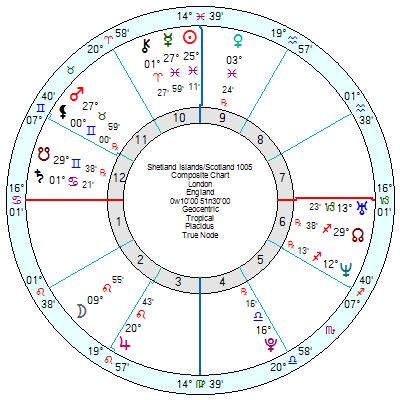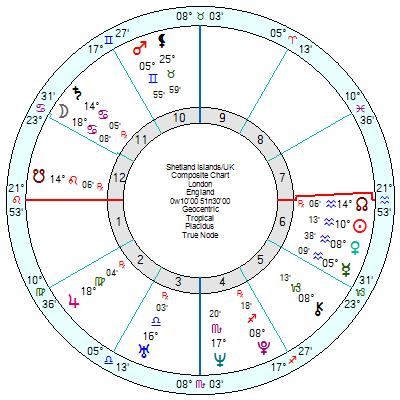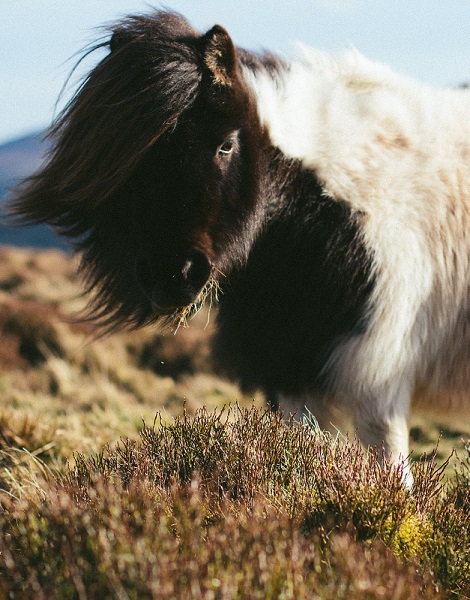



Mutiny is afoot in the Shetland Islands, the furthest north of UK territories, where the local council has voted decisively to look at declaring independence from Edinburgh and London. The population of just over 20,000 is concerned about local poverty (with costs being 60% higher than the mainland) despite having the Sullom Voe oil and gas terminal, as well as oil fields and lucrative fisheries and salmon production on their patch.
Shetlanders look enviously at the Faroes, to the north of them, which has a parliament able to raise and spend taxes while at the same time getting generous subsidies from Denmark, to which it is affiliated.
The Shetlands are 111 miles from the mainland, and geographically closer to Bergen than Edinburgh. Culturally there are still strong ties to their Nordic roots. They came under Scottish rule on 20 February 1472 JC. This gives a Pisces Sun in a controlling opposition to Pluto. There’s a good deal of unrest in particular around 2023 –although they’ve been in situ for centuries and there’s nothing too definitive on the chart that would suggest a complete rupture.
It will give Nicola Sturgeon a headache since their arguments are much the same as the SNP’s about splitting from London. The relationship charts between the Shetlands and Scotland 842 AD and Scotland 1005 AD have tr Neptune undermining the composite Suns and other planets till almost mid decade; and the 1034 AD chart also looks highly pressured.
The Shetland/UK 1801 relationship chart is at daggers-drawn at the best of time with palpable dislike – and its stress-to-breaking-point looks more likely after mid decade up to 2029, building up a head of steam after Pluto moves into Aquarius, being conjunct the composite Mercury, Venus and then the Sun.

Hi Katie, and Maggy, just a reminder that prior to 1997 there was no Scottish government. Any treatment of Shetland was entirely through the actions of the Westminster government. Even though there is now Holyrood, I gather Scotland’s taxes still go to London and Westminster then decides how much of an allowance Scotland should have of it’s own earnings. PS Here in North Eastern Scotland the vibe is more Nordic and the Doric, which my husband speaks, is a mix of Norse, old English, Flemish and French. Neptune on the mutable cross 2012-2026 means it’s wise to fact-check everything…
Oh please, not everything in the universe is the fault of Westminster/the English – appalling tho’ Westminster undoubtedly is.
In the final days of the 2014 Scotland independence referendum, the Orkney and Shetland MP Alistair Carmichael, who was minister for Scotland at the time, said the islands could try to remain part of Britain if the rest of Scotland left. The remain-in-the-UK vote in the Shetlands was 63.7% – one of the highest levels in Scotland. Islanders want to investigate the possibility of being governed as a Crown dependency, such as Jersey, rather than setting themselves up as an independent nation. The Faroes often mentioned as a comparison is not in the EU although Denmark is.
Katie, interesting that you experience first hand that a bigger, more established group will always subjugate a minority – i that you see the lean towards Scandinavia from the Shetlands, but there’s nowhere on the planet without a bias. As demonstrated in Chris’ response, minorities are usually overruled by the established locals….where’s the line? Must be enlightening or depressing, depending on your own expectations……
I read about this earlier. Given that the Shetland Islands have a unique history and cultural identity that, to a certain extent, set them apart from Scotland and the rest of the United Kingdom, I do think they at least deserve more autonomy and the Shetlander people (who are technically a distinct ethno-regional group with their own special dialect, genetics, customs, and traditions) should be at least recognized as an official indigenous ethnic minority by the British government.
I’ve always been an advocate for supporting the conservation and rights of indigenous peoples, ethnic groups, and languages all over the world.
I can think of other ethno-regional groups in the British Isles that could use more support too – including the Romanichal, the Irish Travellers, the Scottish Gypsies and Travellers, the Cornish, the Hebridean Islanders, the Orcadians, the Manx, the Jèrriais, and the Guernésiais.
Thanks Marjorie, this is interesting. I moved to Shetland in March this year, and it’s true there is animosity towards the Scots from the mainland who it seems did similar things that the English did to the Irish in the past.
I would say that the native Shetlanders would seem to be more Scandinavian than Scottish. And the dialect comes from old ‘Norn’ which is now extinct, but has the same roots as Icelandic and Faroese.